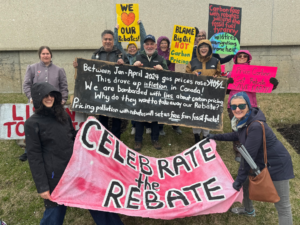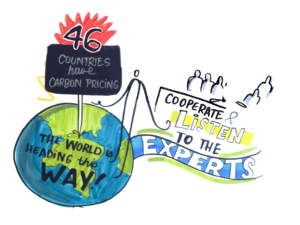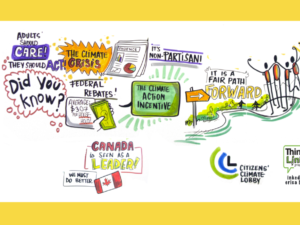Tuesday, December 8, 2020 CARBON PRICING CAN CLOSE HALF THE GAP TO THE 2050 TARGET Read the report: Creating Clean Prosperity Quick Facts He worked directly with dozens of farmers and saw first-hand the effects climate change was having on the farms he worked with. As a father of 2 young kids, he’s also very concerned about the future that we’re leaving to the next generation. Before working in the local food sector, Michael was a business management consultant at McKinsey where he advised Fortune 500 companies, institutional investors and governments on key strategic and business issues. He also worked with InvestEco Capital to set up an advisory service that offered support to companies in the sustainable food sector. When he’s not working on climate change, you can find him building lego airplanes with his kids or doing his best karaoke impression of Vanilla Ice.CCL Canada Education Call with Michael Bernstein Executive Director of Canadians for Clean Prosperity
A Plan to Reach Net-Zero
As the Canadian government prepares to introduce a more ambitious climate plan in the coming days, Clean Prosperity released a strategy to reduce Canada’s greenhouse gas emissions while growing the low-carbon economy of the future.
About Michael Bernstein
 Michael joined Clean Prosperity in 2018 after a career that spanned business, management consulting, international development and politics. Prior to Clean Prosperity, Michael was the CEO of Mama Earth Organics, a small business that delivered organic produce from local farms to families around the Greater Toronto Area.
Michael joined Clean Prosperity in 2018 after a career that spanned business, management consulting, international development and politics. Prior to Clean Prosperity, Michael was the CEO of Mama Earth Organics, a small business that delivered organic produce from local farms to families around the Greater Toronto Area.
CCL-C Education Call with Michael Bernstein Executive Director of Canadians for Clean Prosperity (Dec. 2020)
Home » CCL Canada News » CCL-C Education Call with Michael Bernstein Executive Director of Canadians for Clean Prosperity (Dec. 2020)
CCL-C Education Call with Michael Bernstein Executive Director of Canadians for Clean Prosperity (Dec. 2020)
Posted on December 10, 2020 in CCL Canada Education Call











